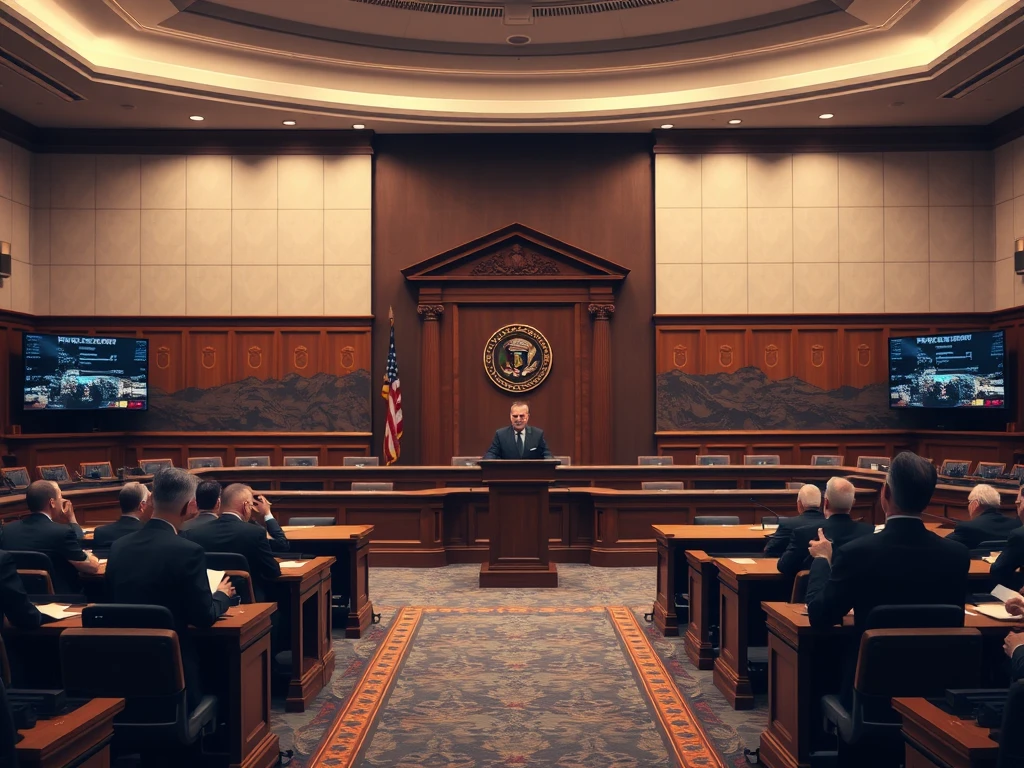US Treasury Secretary Signals **Crucial** Support for Crypto Bills

The landscape of digital asset regulation in the United States is constantly evolving, and recent comments from the highest levels of government offer a glimpse into potential future directions. The **US Treasury Secretary** recently weighed in on ongoing legislative efforts, signaling support for key pieces of proposed legislation that could shape how cryptocurrencies and stablecoins are treated in the country.
Why is the US Treasury Secretary Discussing Crypto Bills?
Speaking before the House Financial Services Committee, **Scott Bessent**, the current US Treasury Secretary, addressed questions regarding the nation’s position in the global digital asset space, particularly in comparison to countries like China. Bessent articulated a vision for the United States to become the “premier destination for digital assets.” He suggested that achieving this goal would require foundational elements, specifically highlighting the importance of “good market structure” and robust “stablecoin legislation.”
Understanding the Proposed Crypto Bills
The Treasury Secretary’s remarks likely referred to two specific legislative efforts gaining traction in Congress:
- **The Market Structure Bill:** A draft of this digital asset market structure bill was released by House Republicans shortly before Bessent’s testimony. It aims to establish a clear regulatory framework for various aspects of the crypto market, determining which assets fall under the purview of which regulatory body (like the SEC or CFTC).
- **The GENIUS Stablecoin Bill:** This proposed legislation focuses specifically on regulating stablecoins. Stablecoins are cryptocurrencies designed to maintain a stable value relative to a specific asset, like the US dollar. Effective **stablecoin legislation** is seen by many, including Bessent, as crucial for ensuring financial stability and fostering confidence in the digital asset ecosystem.
Political Dynamics and Challenges for Crypto Bills
While the **US Treasury Secretary**’s support provides a boost for these initiatives, their path through Congress is not without obstacles. The political environment surrounding cryptocurrency regulation is complex and often partisan.
Recent events, such as controversy surrounding former President Trump’s interactions with the crypto community, have added layers of scrutiny and opposition. Some Democratic lawmakers have voiced concerns and pushed back against the current drafts of the **crypto bills**, citing issues related to Anti-Money Laundering (AML) safeguards, foreign issuer regulations, and potential national security implications. For instance, Representative Maxine Waters led a walkout during a hearing on the market structure bill, raising questions about potential conflicts of interest.
The ability of Republicans, who currently hold control in both chambers, to secure sufficient votes for the passage of the **market structure bill** and the stablecoin bill remains uncertain in light of this political pushback.
What Does This Mean for the Future of US Crypto Regulation?
The Treasury Secretary’s endorsement underscores a growing recognition within parts of the US government that clear regulation is necessary to foster innovation and competitiveness in the digital asset sector. The focus on **stablecoin legislation** suggests this area may see movement first, given its perceived importance for financial stability. However, the political divisions highlight the challenges ahead in passing comprehensive federal frameworks. The debate is ongoing, and the final form of any legislation could significantly impact the development and adoption of cryptocurrencies and blockchain technology in the United States.
Conclusion
The comments from **Scott Bessent**, the **US Treasury Secretary**, at the recent hearing signal high-level executive support for legislative efforts aimed at creating clearer rules for the digital asset market, particularly concerning stablecoins. While this support is a positive sign for proponents of regulation, the significant political opposition, particularly from some Democrats, means the future of these **crypto bills** is far from guaranteed. The coming weeks and months will be crucial in determining whether Congress can bridge the divide and pass legislation that aims to position the US as a leader in the rapidly evolving world of digital assets.









